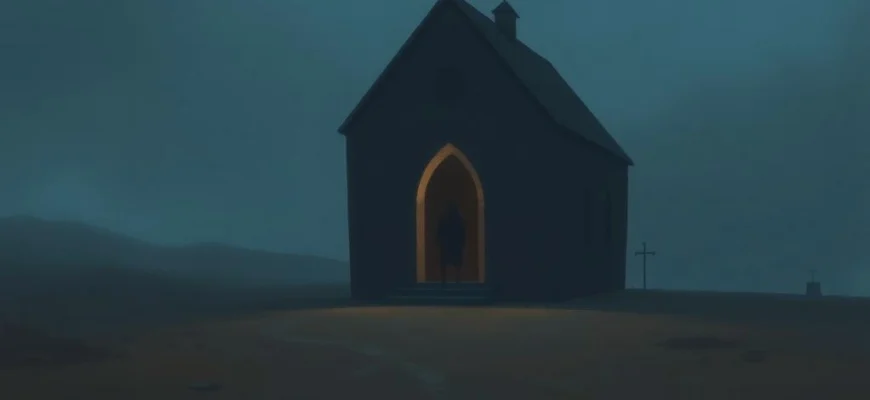If you were captivated by the haunting introspection and moral complexity of 'First Reformed' (2018), you'll love these 10 similar films and shows. This article explores titles that share its themes of existential dread, faith, and quiet despair, offering a curated list for fans of slow-burning, thought-provoking cinema.

The Passion of Joan of Arc (1928)
Description: A harrowing and intimate portrayal of faith, martyrdom, and spiritual conviction, told through intense close-ups and minimalist storytelling. The film's raw emotional power and focus on suffering elevate it to a transcendent experience.
Fact: The original negative was lost in a fire, and the film was reconstructed from alternate prints. It is often cited as one of the greatest silent films ever made.
 Watch Now
Watch Now 
Diary of a Country Priest (1951)
Description: A deeply spiritual and introspective film that follows a young priest grappling with faith, doubt, and suffering. Its minimalist style and focus on inner turmoil resonate with themes of existential struggle.
Fact: The film is based on a novel by Georges Bernanos. It won the Grand Prize at the Venice Film Festival.
 Watch Now
Watch Now 
The Seventh Seal (1957)
Description: A timeless meditation on death, faith, and the search for meaning, framed as a medieval allegory. The film's stark imagery and existential questions resonate deeply with spiritual and philosophical themes.
Fact: The iconic chess game with Death has become one of the most referenced scenes in cinema history. The film was shot on a modest budget but achieved international acclaim.
 Watch Now
Watch Now 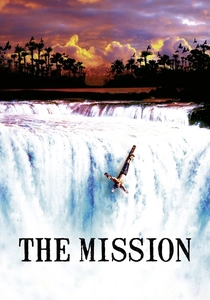
The Mission (1986)
Description: A visually breathtaking and morally complex film about faith, redemption, and the clash between spirituality and colonialism. Its sweeping cinematography and profound ethical dilemmas resonate with themes of sacrifice and conviction.
Fact: The film's score, composed by Ennio Morricone, is considered one of the greatest in cinema history. It won the Palme d'Or at Cannes.
 Watch Now
Watch Now 
The Sacrifice (1986)
Description: A haunting exploration of faith, sacrifice, and the human condition, told through a slow, meditative narrative. The film's visual poetry and philosophical depth create a transcendent experience.
Fact: This was Andrei Tarkovsky's final film. It was shot in Sweden with Ingmar Bergman's regular cinematographer.
 Watch Now
Watch Now 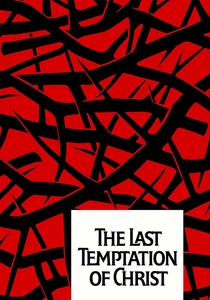
The Last Temptation of Christ (1988)
Description: A controversial and deeply humanistic portrayal of Jesus, exploring his doubts, fears, and spiritual struggles. The film's bold reinterpretation of sacred narrative and its focus on inner conflict create a provocative and thought-provoking experience.
Fact: The film was banned in several countries due to its unconventional depiction of Christ. It was based on a novel by Nikos Kazantzakis.
 Watch Now
Watch Now 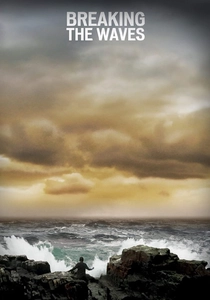
Breaking the Waves (1996)
Description: A raw and emotionally devastating exploration of faith, sacrifice, and unconditional love, set against a stark and unforgiving landscape. The film's handheld cinematography and unflinching honesty create a deeply immersive experience.
Fact: The film is divided into chapters with title cards featuring classical music. It won the Grand Prix at the Cannes Film Festival.
 Watch Now
Watch Now 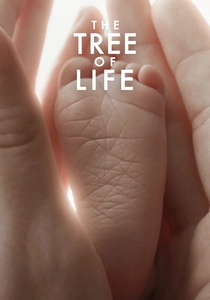
The Tree of Life (2011)
Description: A visually stunning and deeply philosophical film that intertwines personal memory with cosmic grandeur, exploring themes of grace, suffering, and the divine. Its nonlinear storytelling and spiritual inquiries create a profound emotional impact.
Fact: The film includes actual footage of the cosmos and the origins of life. It won the Palme d'Or at the Cannes Film Festival.
 Watch Now
Watch Now 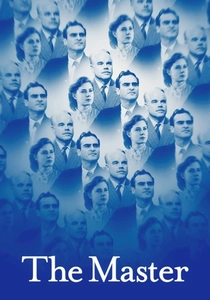
The Master (2012)
Description: Explores themes of faith, existential crisis, and the search for meaning through a deeply introspective and psychologically complex narrative. The film's slow pacing and intense character studies mirror a meditative and philosophical approach.
Fact: The film was shot using 65mm film, giving it a distinct visual texture. It was partially inspired by the early days of Scientology.
 Watch Now
Watch Now 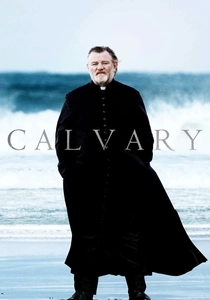
Calvary (2014)
Description: A profound meditation on morality, forgiveness, and the burden of faith, set against a bleak and introspective backdrop. The film's stark realism and moral dilemmas create a deeply contemplative atmosphere.
Fact: The title refers to the site of Jesus' crucifixion, symbolizing the priest's impending sacrifice. The film was shot in just 28 days.
 Watch Now
Watch Now 
